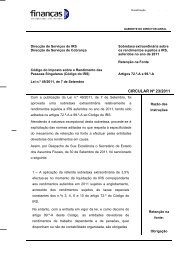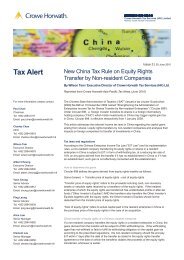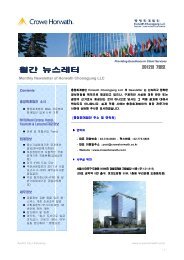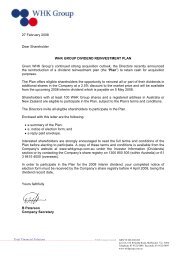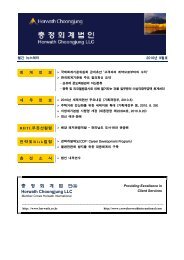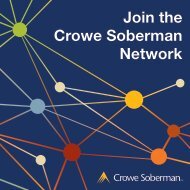Guidance Paper - The Institute of Risk Management
Guidance Paper - The Institute of Risk Management
Guidance Paper - The Institute of Risk Management
Create successful ePaper yourself
Turn your PDF publications into a flip-book with our unique Google optimized e-Paper software.
Sketch<br />
403<br />
<strong>Risk</strong> appetite should be<br />
evolved from and support the<br />
strategic planning and<br />
business objectives <strong>of</strong> the organisation. It<br />
needs to become a central component <strong>of</strong><br />
the business planning cycle. <strong>The</strong> risk<br />
appetite framework helps to articulate the<br />
risks to the business that could potentially<br />
impact on the achievement <strong>of</strong> strategic<br />
goals (positively or negatively). It will<br />
reflect the extent to which the<br />
organisation is prepared to tolerate risks<br />
described by limits, indicators and process<br />
controls.<br />
Sketching a risk appetite<br />
404 framework is likely to require<br />
a reasonable degree <strong>of</strong><br />
knowledge. For example, it<br />
would not be unreasonable to expect that<br />
an organisation:<br />
• Should have defined and clearly<br />
articulated its core strategy<br />
• Would know its principal risks and the<br />
approach taken in managing them,<br />
and<br />
• Would be able to describe with<br />
reasonable certainty the main features<br />
<strong>of</strong> its risk management capability, both<br />
in terms <strong>of</strong> capacity and maturity.<br />
Ensuring that this detail is in<br />
405 place will enable a<br />
constructive statement <strong>of</strong> risk<br />
appetite to be developed<br />
using the main facets <strong>of</strong> the framework<br />
described in Sections II and III <strong>of</strong> this<br />
paper.<br />
Stakeholder<br />
engagement<br />
406<br />
For some the “business <strong>of</strong><br />
business is business”<br />
(attributed to Milton<br />
Friedman) and they will see no need to<br />
consult stakeholders apart from<br />
shareholders. For others who see a<br />
broader construct <strong>of</strong> the impact <strong>of</strong><br />
business and government (and the third<br />
sector) on society, there may well need to<br />
be a broader range <strong>of</strong> consultation. For<br />
example, it might make sense to engage<br />
with others in the value chain, with (some)<br />
customers, and with others on whom your<br />
organisation depends. For some<br />
organisations, it will also make sense to<br />
engage with broader societal groups. For<br />
example, drilling oil wells <strong>of</strong>fshore is likely<br />
now to raise deep concerns and being<br />
clear with residents and businesses about<br />
resilience in the event <strong>of</strong> oil spills would<br />
make considerable sense. For other<br />
organisations, it may well be that they<br />
wish to engage buy-side analysts engaged<br />
in the debate about risk appetite.<br />
<strong>The</strong> purpose <strong>of</strong> engaging with<br />
407 stakeholders, however<br />
described and however<br />
broadly or narrowly defined, is<br />
to ensure that both the risk taking and the<br />
control activities are broadly aligned with<br />
others, or that potential divergences are<br />
identified early.<br />
A fuller extract from Friedman’s<br />
own writings illustrates a rather<br />
wider perspective to the relevance<br />
<strong>of</strong> wider stakeholders on business<br />
than is sometimes attributed to him:<br />
“A corporate executive… has direct<br />
responsibility to his employers… to<br />
conduct the business in accordance<br />
with their desires, which generally<br />
will be to make as much money<br />
as possible while conforming to<br />
their basic rules <strong>of</strong> society, both<br />
those embodied in law and those<br />
embodied in ethical custom.”<br />
(Friedman, 1970)<br />
31






